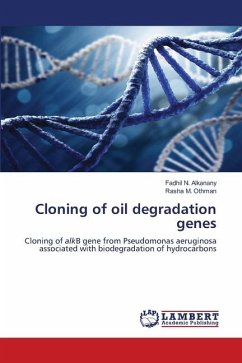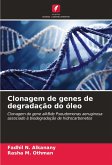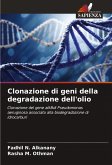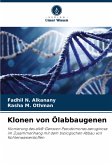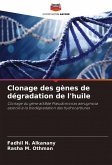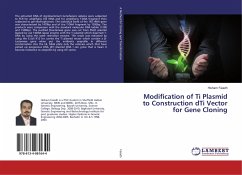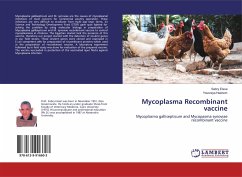A novel bacterium was engineered with an effective expression system to improve its ability to degrade oil in contaminated environments. Enrichment culture techniques were used with crude oil as the sole carbon source to isolate microorganisms. Seventeen bacterial isolates were identified using biochemical tests and 16S rRNA gene sequencing. Identified genera included Acinetobacter, Pseudomonas, Aeromonas, Micrococcus, Achromobacter, Enterobacter, Klebsiella, Staphylococcus, Bacillus, Exiguobacterium, Brevibacillus, and Stenotrophomonas. A specific primer was designed to amplify the alkB gene, confirming its presence in Pseudomonas aeruginosa. Plasmid curing confirmed the gene's presence on the chromosome. The alkB gene was cloned into a plasmid vector, transformed into E. coli, and confirmed via PCR. Expression of the gene was verified, and its contribution to biodegradation efficiency was tested using n-hexadecane as a substrate. Biodegradation efficiency increased from 32.63% to 77.42% after 72 hours, indicating a 44.8% improvement. Gene amplification and cloning strategies were simulated using SnapGene software. This study is the first of its kind in Iraq.
Bitte wählen Sie Ihr Anliegen aus.
Rechnungen
Retourenschein anfordern
Bestellstatus
Storno

